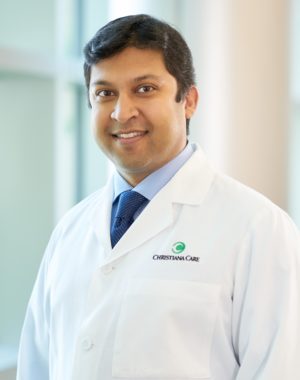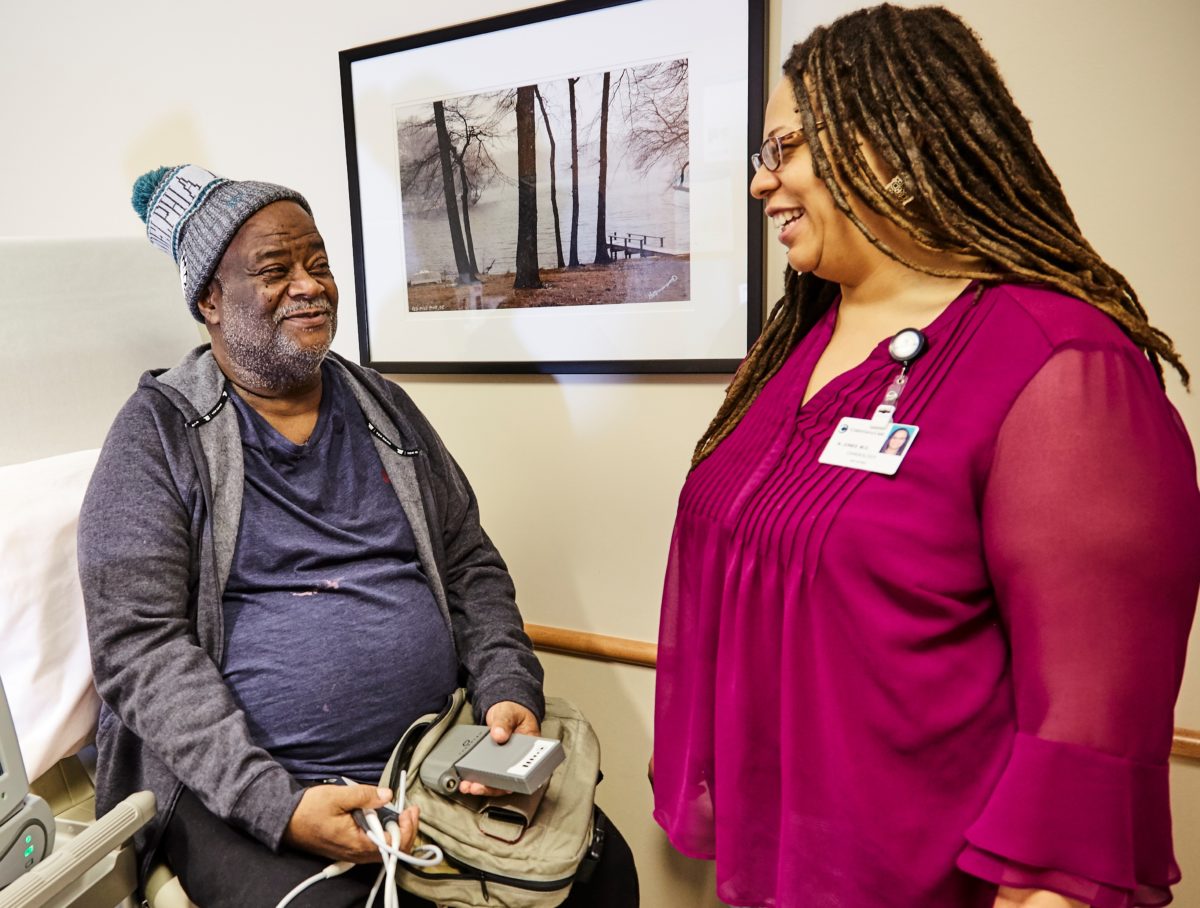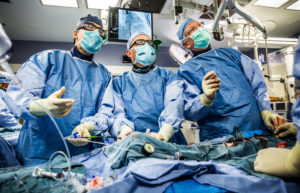The Center for Heart & Vascular Health at Christiana Care is the only site in Delaware to offer an advanced technology that is helping more patients with serious heart failure live longer, more productive lives.
Surgeons in the Heart Failure Program at Christiana Care are now able to implant the HeartMate 3 (HM3) left ventricular assist device (LVAD). The HM3 is smaller and has less risk of clotting compared to its predecessor HeartMate II which the Christiana Care Advanced Heart Failure team had been using previously.
“This is the best and safest product on the market and the next step in the continuous evolution of the LVAD,” said Sourin Banerji, M.D., who leads the Heart Failure Program. “Patients who cannot receive a heart transplant because of issues including age, diabetes and obesity can pursue LVAD implantation as an option. With the HM3, early survival is now approaching that of transplant and continues to evolve.”
Originally, LVADs were large machines that kept patients alive while they were awaiting heart transplants. But with tens of thousands of patients on waiting lists each year for an estimated 2,000 hearts, LVAD is increasingly used as a destination therapy, a device patients will rely on for the rest of their lives.

“This latest LVAD means more patients will live longer and enjoy a better quality of life than they would otherwise if they did not have access to this option,” Dr. Banerji said.
Christiana Care’s Heart Failure Program has earned advanced certification by the Joint Commission, which accredits and certifies health care organizations in the United States.
Offering state-of-the-art technology is part of Christiana Care’s commitment as a nationally recognized leader in health care, said Kirk N. Garratt, M.D., MSc, medical director of the Center for Heart & Vascular Health.
“Our patients rely on us to provide them with respectful, expert care and to embrace innovations that optimize health,” he said. “Our successful LVAD program is making a difference for our patients and for their families.”
With previous LVADs, patients had higher risks of clots, leading to hospitalization and surgery to exchange the pump. That risk is reduced significantly in the HeartMate 3 because the device’s rotor is magnetically levitated, or suspended, providing ample space for the blood to go through. Additionally, the newest pump contains a feature that “washes” the motor housing to further reduce risk of clots developing. Stroke risk also is slightly reduced.

Because there is no inflow cannula on the new device, the team’s surgeons, Franjo Siric, M.D., and Ray A. Blackwell, M.D., can complete implantations more quickly. Blackwell is the W. Samuel Carpenter III Distinguished Chair of Cardiovascular Surgery and chief of Cardiac Surgery.
The previous device required the creation of a large pocket in the abdominal wall. This peritoneal pocket sometimes led to bleeding and infection. The newer, smaller device sits very close to the heart and does not require creation of a pocket. This allows the surgeons to implant the device more quickly. Other associated benefits include less trauma, less bleeding and less need for transfusions, less time in the operating room and less risk of infection.
“That is also good news for someone who is of smaller size, because we can now accommodate them with this newest LVAD device,” Dr. Banerji said.
In 2018, surgeons at Christiana Care implanted 10 LVADs. Christiana Care’s LVAD program is part of a comprehensive Heart Failure Program that allows patients to receive tests, medications, stress management, nutrition counseling and other high-quality care in one location without having to leave the state.
Christiana Care has earned LVAD certification since 2011, demonstrating compliance in heart care quality and safety in LVAD therapy.


